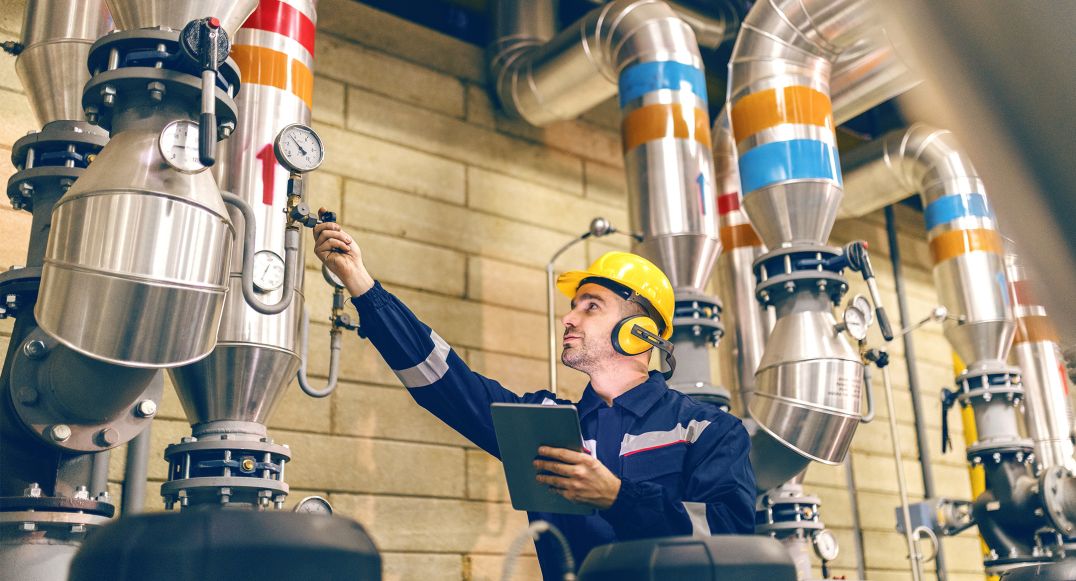MAXIMIZING PERFORMANCE AND LONGEVITY: THE IMPORTANCE OF VALVE MAINTENANCE
02.19.2024 | Industry News

Industrial valves are used in countless manufacturing processes, regulating the flow of fluids and gases with precision and reliability. However, their crucial role often goes unnoticed until a malfunction occurs, disrupting operations and causing costly downtime. This is where the importance of regular valve maintenance comes into play.
Ensuring Optimal Performance
Industrial valves operate in demanding environments subjected to high pressures, extreme temperatures, corrosive fluids, and abrasive particles. Over time, these harsh conditions can take a toll on valve components, leading to wear, leaks, and diminished performance. Regular maintenance routines are essential to detect and address potential issues before they escalate into major problems.
Routine inspections allow technicians to identify worn-out seals, damaged seats, or signs of corrosion that could compromise valve integrity. By replacing worn parts and performing necessary repairs in a timely manner, maintenance helps maintain optimal performance and reliability, minimizing the risk of unplanned shutdowns and costly repairs.
Extending Longevity
Like any mechanical equipment, industrial valves have a finite lifespan, but proper maintenance can significantly extend their longevity. By implementing preventive maintenance schedules tailored to specific valve types and operating conditions, companies can maximize the lifespan of their valve assets and avoid premature failures.
Regular cleaning and lubrication of valve components prevent corrosion and friction, preserving their functionality and preventing premature wear. Additionally, calibration and testing ensure that valves operate within specified tolerances, maintaining process efficiency and accuracy over time.
Enhancing Safety and Compliance
In industries where safety and regulatory compliance are paramount, well-maintained valves play a crucial role in preventing accidents and ensuring environmental protection. Faulty valves can lead to leaks, spills, or process deviations that pose safety hazards to personnel and environmental risks to surrounding ecosystems.
By conducting regular inspections and testing, companies can identify potential safety hazards and address compliance issues proactively. Ensuring that valves meet industry standards and regulatory requirements not only safeguards personnel and assets but also protects the company from costly fines and legal liabilities.
Reducing Operating Costs
While investing in regular valve maintenance requires time and resources, the long-term benefits far outweigh the costs. By preventing unexpected failures and optimizing valve performance, maintenance efforts help reduce downtime, improve productivity, and minimize repair expenses.
Furthermore, proactive maintenance practices enable companies to plan and budget for future valve replacements or upgrades strategically. By optimizing asset lifecycle management and minimizing lifecycle costs, companies can achieve greater operational efficiency and competitiveness in the marketplace.
In summary
Valve maintenance is very important to industrial operations. By implementing regular maintenance routines, companies can ensure optimal valve performance, extend asset longevity, enhance safety and compliance, and reduce operating costs. Ultimately, investing in valve maintenance is an investment in the reliability, efficiency, and profitability of industrial processes.
About SVF Flow Controls
SVF Flow Controls is a recognized leader in flow control technology offering a full range of superior-quality engineered valves, actuators and controls for unique applications including high pressure and high purity. Designed of exotic alloys, SVF Flow Controls serves many industries including; chemical, biotech, semiconductor, pharmaceutical, petro-chem, food & beverage, oil & gas, refining, etc.

